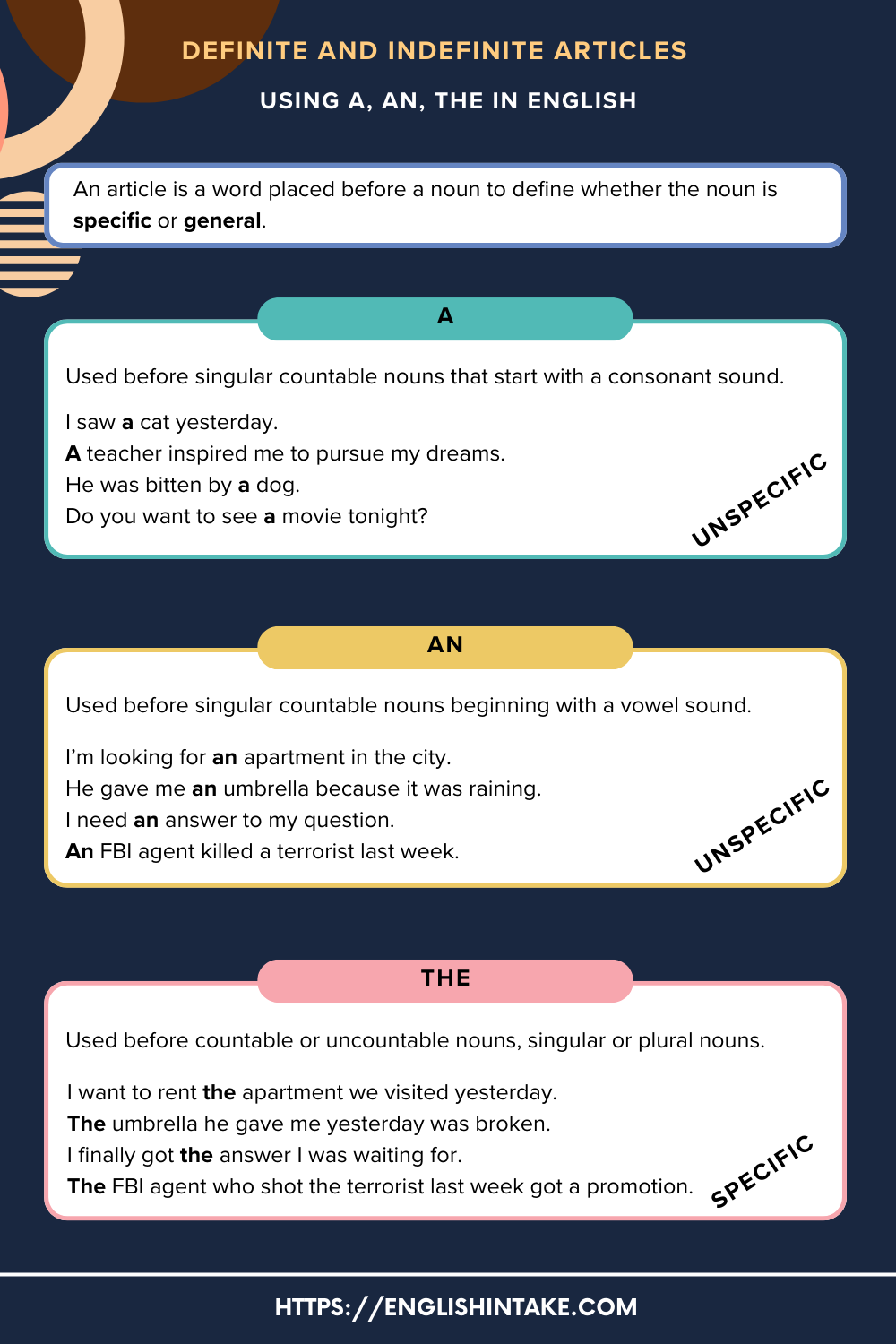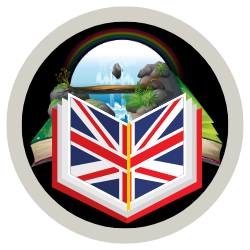
A, an, the - Articles in English
An article is a word that define a noun as specific or unspecific. In English, there are two types of articles: definite (the) and indefinite (a/an).
- The dog (a specific dog we both know about)
The use of articles in sentences depends on whether we are referring to something specific or something more general. In the examples above, "a dog" is referring to any dog, while "the dog" refers to a dog that has already been mentioned or is known to the speaker and listener. Now, let's take a closer look at how to use each of these articles correctly.
When to use the indefinite article "a/an"
Use "a" before words that start with a consonant sound and "an" before words that start with a vowel sound. They are used with singular, countable nouns when referring to something non-specific.
- She ate an apple. (Any apple, not specific)
When to use the definite article "the"
Use "the" with countable or uncontable nouns, singular or plural nouns when the noun is specific. The listener or reader knows exactly which individual or group is being referred to.
- The apples on the table are fresh. (Specific apples, not any apples)
When not to use "the"
Do not use "the" with:
- names of mountains (Mount Everest, Mount Rainer),
- names of continents (Africa, Antarctica, Asia, Europe, North America, Oceania, South America),
- names of cities (London, Paris, Barcelona, Madrid),
- schools or universities named after a place or a person (Anglia Ruskin University, Cambridge University, Audrey Cohen College).
- My goal is to visit all seven continents, starting with Asia.
- I’m going to Paris next month.
- She graduated from Harvard University with honours last year.
There are cases where no article is used, often referred to as the zero article. This usually applies to plural countable nouns and uncountable nouns when speaking in general terms.
- Music can be relaxing. (Uncountable noun, general)

